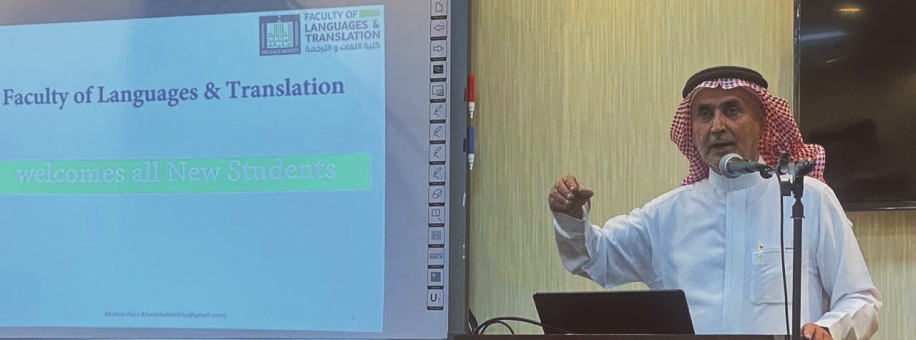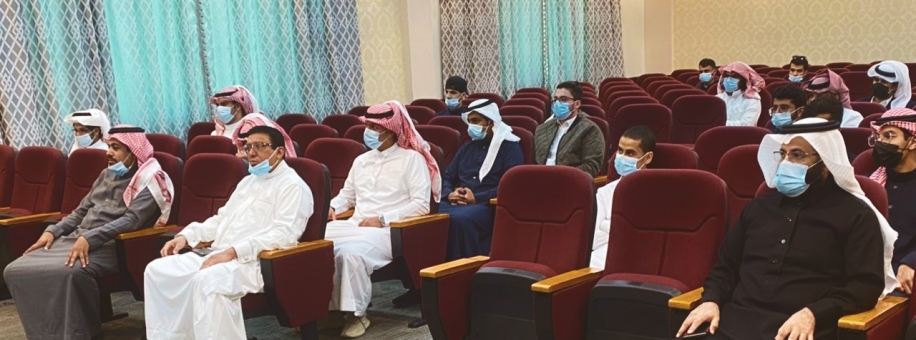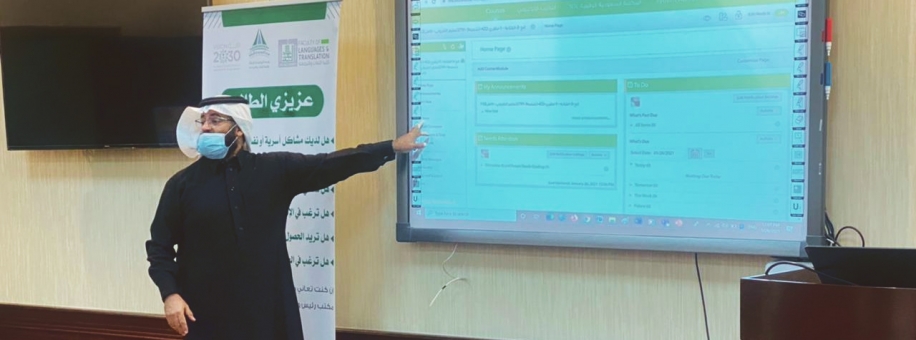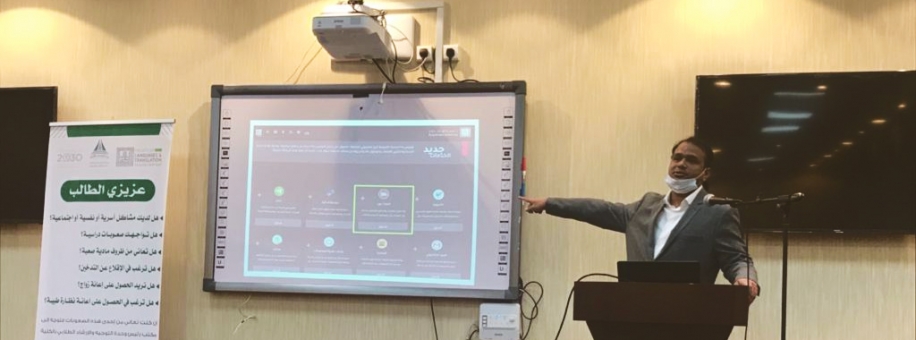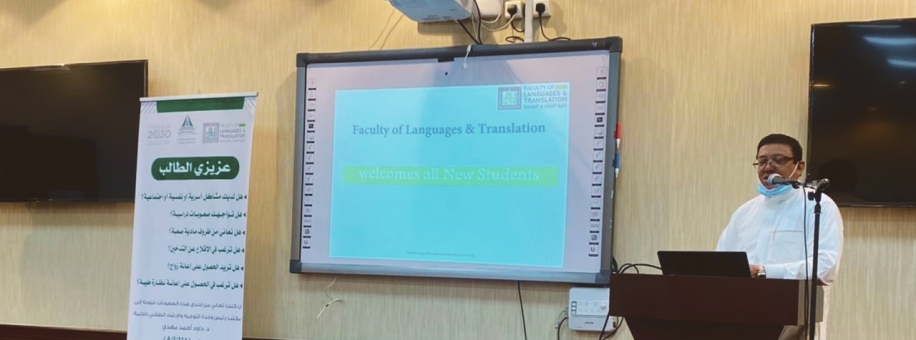Spring 2021 Orientation Day
On 26 January 2021, the Bachelor of Arts in English program at the Faculty of Languages and Translation held an orientation program for first-year students. At the gathering, new students received important information delivered in a small group and discussion format in line with COVID-19 social distancing measures. Several members of the leadership team and functional units of the FLT were there to introduce the curriculum and the culture within the campus.
Dean Abdullah Al-Melhi began the program by welcoming the students. He explained that this meeting is not just a perfunctory gathering, highlighting that this welcoming activity was designed to help students overcome the challenges and difficulties they will face while keeping an eye on success. Dean Al-Melhi then imparted important instructions about the English program and useful tips for academic success.
Vice Dean of Academic Affairs, Dr. Yahya Asiri, then introduced students to the intended outcomes of the Bachelor of Arts in English program, how they will be assessed, an overview of Blackboard, and the expectations of their performance as they progress through the university. English Department Chair, Dr. Munassir Alhamami, echoed Vice Dean Asiri's advice and familiarized students with university rules and regulations. Academic Advisor, Dr. Dawood Mahdi, followed after and encouraged students to use the services available on campus to support their success.
At the end of the event, E-Learning Unit Supervisor, Mohsin Raza Khan, guided students through the basics of Blackboard, such as how to log in, upload assignments, use the discussion forum, and take exams. He explained that if they need help throughout the semester, the Blackboard Student Support team is also just a call or click away.
The Bachelor of Arts in English program is committed to providing a comprehensive orientation for new students, ensuring their full understanding of the types of services and facilities available.
Date: 1/26/2021
Source: FLT Web

